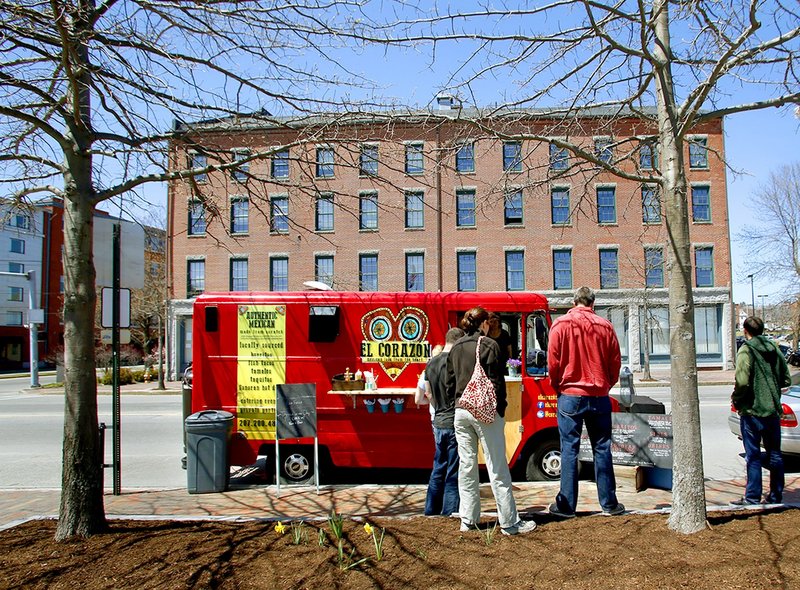Portland’s food truck scene isn’t very old, but it’s already hit a few regulatory speed bumps.
Mobile purveyors of tacos, hamburgers, lobster rolls and other casual fare say the year-old ordinance that regulates where and when they operate makes it harder for them to do business here.
Several provisions have left a particularly sour taste in vendors’ mouths. One, a permit fee for trucks on private property, has been described as “double dipping.” Another controversial rule bars food trucks from doing business within 65 feet of other food trucks or bricks-and-mortar restaurants.
Portland officials have taken note of food truck owners’ concerns and are seeking their feedback on ways to improve the ordinance.
The city is wise to take these concerns seriously. The glitches in even the most carefully crafted of regulations often don’t reveal themselves until the rules take effect. That’s what’s happening here. Food trucks are an expanding part of an industry that’s vital to Portland’s economy and its culture; a revised ordinance can put in place reasonable rules while still giving food service entrepreneurs more freedom to run viable, innovative local businesses.
Mobile vendors shouldn’t be excused from following well-thought-out regulations. The need for laws governing the safety of the consumer food supply goes without saying. It’s also pertinent to ensure that food trucks aren’t parked in such a way as to block traffic and that they don’t contribute unduly to rowdy late-night crowds.
At the same time, food trucks shouldn’t be the target of excessive or pointless rules. One that springs to mind is a requirement that food trucks parked on private property pay the city $105 for building and occupancy permits — in addition to the rent they’ve agreed to pay the property owner and the $500 municipal license, $110 inspection and $200 night vending fees. The city ordinance forces a vendor who’s not getting enough foot traffic in a particular spot to either stay in an unworkable location or — so to speak — eat the permit fee in order to move.
The 65-foot setback also has been unpopular with food truck vendors because it keeps them from “clustering” with other food trucks. We understand that mandating a certain distance between restaurants and mobile eateries was an effort to make the food truck ordinance politically viable. But it’s not clear what is accomplished by barring food trucks from setting up shop next to one another and providing customers several options in one place.
The good news is that as Portland revises the food-truck ordinance, it can draw on an emerging set of best practices. Public policy experts have made recommendations, and other cities are testing regulations via pilot programs. (Las Vegas, for example, is experimenting with setting aside a certain number of downtown parking spaces solely for food trucks and assigning them by lottery.)
With all this information at hand, there’s no reason Portland can’t modify the food truck ordinance and take a step forward in supporting a thriving culinary scene.
Copy the Story Link
Send questions/comments to the editors.



Success. Please wait for the page to reload. If the page does not reload within 5 seconds, please refresh the page.
Enter your email and password to access comments.
Hi, to comment on stories you must . This profile is in addition to your subscription and website login.
Already have a commenting profile? .
Invalid username/password.
Please check your email to confirm and complete your registration.
Only subscribers are eligible to post comments. Please subscribe or login first for digital access. Here’s why.
Use the form below to reset your password. When you've submitted your account email, we will send an email with a reset code.